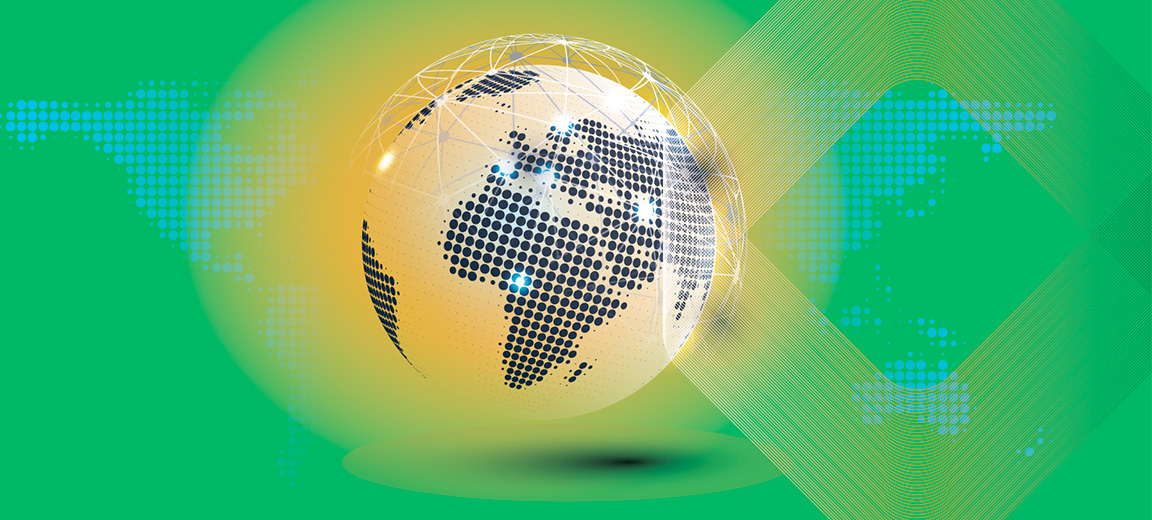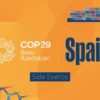Friday, 8th November 2024, from 09:30 to 12:20 h. CEST (UTC+2). Venue: MOEVE Tower, Pº de la Castellana 259A, Madrid.
During the forthcoming European institutional cycle, energy and climate policy will continue to play a central role in the political agenda. The EU’s ambitious targets, particularly achieving net-zero emissions by 2050 and (potentially) reducing emissions by 90% by 2040 vis-à-vis 1990 levels, reflect the scale of the challenge and the bloc’s determination to maintain its directional leadership in climate action. However, the imperative to transition to cleaner energy systems while ensuring reliable and affordable supplies has become a critical issue for the EU to achieve sustainable competitiveness. The energy crisis, exacerbated by geopolitical instability and supply chain disruptions, has exposed the bloc’s vulnerability to external dependencies, particularly in relation to fossil fuel imports.
In this context, the next Commission will need to reconcile the implementation of the European Green Deal with new demands to strengthen its competitiveness, expands its industrial capacity, decouple energy supplies from Russia, and mitigate vulnerabilities concerning China. The legacy of the outgoing Commission is substantial and will require significant legislative and regulatory development at both the European and Member State levels. Among others, packages such as the Net Zero Industry Act (NZIA), the European Critical Raw Materials Act (CRMA), the European Deforestation Regulation (EUDR) and the Carbon Border Adjustment Mechanism (CBAM) will serve as cornerstones of this effort, ensuring that Europe’s objectives are aligned with its economic and geopolitical priorities. The above legislative developments will require enhanced diplomacy and continued efforts to support partner countries.
A further key objective of the European Green Deal is to guarantee a just energy transition that leaves no one behind and is socially acceptable. This includes managing the impacts of transitioning away from fossil fuels as well as those resulting from the deployment of renewables. On the international stage, the EU must navigate a complex landscape of power competition, including uncertainties about the climate, energy and commerce stance of the next US government, intensifying trade tensions with China, and a developing world increasingly sceptical of some climate and energy narratives.
As for climate diplomacy at COP29, the EU will call on partners to implement the Global Stocktake, enhance climate ambition through updated Nationally Determined Contributions (NDCs) and improve collaboration to agree on a new climate finance goal; the New Collective Quantified Goal (NCQG). The COP29 presidency has stated that raising ambition and enabling action are the two key pillars of climate negotiations this year. While an enhanced climate finance goal that would help pave the way for more ambitious climate commitments next year is an expected result of this ‘climate finance COP’, said goal could be difficult to achieve in Baku.
Critical questions remain: Can the EU develop a coherent strategy that ensures both decarbonisation and competitiveness fostered by the Clean Industrial Deal, particularly in the face of the energy decoupling from Russia? How will the EU deal with escalating trade tensions with China? How to finance the massive investments that are needed and bring innovation back to Europe? How can the EU maintain social acceptance of its climate policies while addressing concerns over their economic impacts? Lastly, how can the EU engage developing countries in the external dimension of the European Green Deal, ensuring that global climate cooperation remains inclusive and effective? What is the quantum and who should contribute to the NCQG to enable 1.5ºC-aligned NDCs? And, more broadly, how can financial flows be aligned with climate goals?
Hashtag: #CECME24
Programme
9:30 – Inaugural session
- Carmen de Pablo, Chief Financial Officer, MOEVE.
- José Juan Ruiz Gómez, Chairman, The Elcano Royal Institute | @ElcanoJjRuiz
- Pedro Vasconcelos, Chair, Spanish Committee, World Energy Council. Deputy Vice-President Spanish Energy Club.
- Ministry for Ecological Transition and the Demographic Challenge, Government of Spain (TBC).
10:05 – Plenary session. New EU Commission: the way forward
- Cristina Lobillo Borrero, Deputy Director-General for Energy, European Commission.
10:20 – Interview. Financing the transition to a net zero scenario
- Speaker: Adair Turner, Chair, Energy Transitions Commission (online).
- Moderator: Yolanda Fernández, Director Stakeholders Management and Public Affairs, EDP.
10:35 – Roundtable. Direction and challenges of the European Union: how to achieve the EU’s current and future objectives?
- Louise van Schaik, Head of Unit EU & Global affairs / Senior Research Fellow, Clingendael.
- Mikel Lasa, CEO Iberia, EIT InnoEnergy.
- Rafael Cayuela, WEC Board Member Studies Committee, DOW Corporate Chief Economist & EMEAI Chief Strategy.
- Fernando Borredá Juste, Industrial Policy Officer on Strategic Autonomy, Ministry of Industry and Tourism (MINTUR).
- Moderator: Diego Rodríguez Rodríguez, Professor of Economy, Complutense University of Madrid, Researcher at FEDEA.
11:50 – Monographic session. The future of international climate change negotiations
- Elena López Gunn, Senior Research Fellow, The Elcano Royal Institute | @elopezgunn
- Nigar Arpadarai, UN Climate Change High-Level Champion, COP29 (video).
12:10 – Address from the CECME members
Video from CECME´s members.
– The event will be conducted in both Spanish and English, with simultaneous translation available.
– This is an in-person event, and prior registration is required. Register here.


